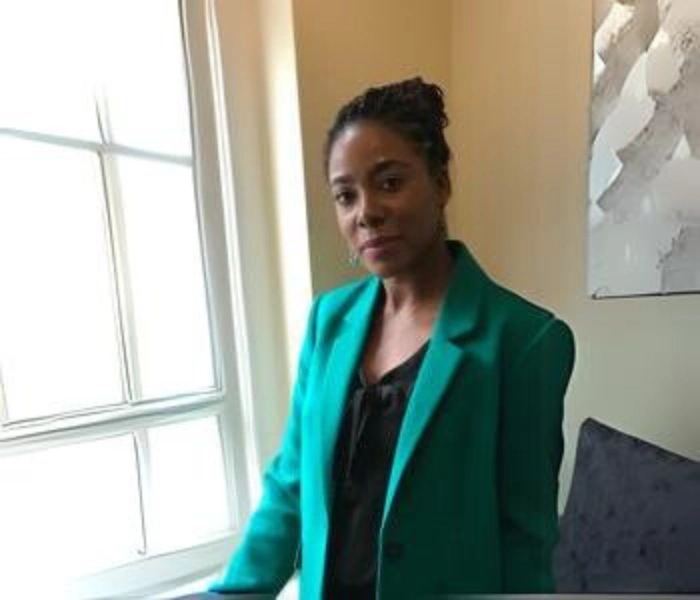Nick Wilding – MEd SEND
Nick Wilding is the Head of Student Support Services at an international school in Vietnam. Beginning his studies with Real Training in 2017, Nick embarked on our National Award for SEN Coordination course. A couple of years later this was followed by the Enquiry-based SEND module.
Since then Nick has completed some of our free-to-access courses as well. Nick says that his special interests in SEN are; awareness, assessment and knowing the whole child, partnerships with specialist teams and development of staff.
To see what Nick made of his time studying with Real Training, please see below:
What made you choose Real Training over other options?
Initially, I chose Real Training because of its links with Middlesex University. I had studied previously at this university and therefore knew that the qualifications would be both recognised and credible. At the time I was working internationally and therefore required a course delivered 100% online. The costs were very competitive and the responses to my questions in the decision phase helped me decide that I should register and sign up because all of my questions and queries were answered clearly, quickly, and sincerely.
The NASENCO award through Real Training became the obvious choice compared to other providers as they met my fundamental requirements. Due to the advice and support of the course leaders and tutors, the decision to study further with Real Training was made easy due to their expertise and the range of subject-specific courses. The Courses and Qualifications page on their website is like a ‘one-stop shop’ for a career in SEND provision.
Subsequently, my experiences have led me to recommend Real Training to many colleagues both in the UK and internationally.
What was your experience of learning with Real Training?
The first tutor feedback I received was both supportive and demanding. This set the tone for the academic standards. I was delighted that this was going to be a ‘real’ postgraduate course and not a ‘pay your money, get your certificate’ style course.
It had been so long since I had written academic essays, therefore the readily available access to advice on the Campus Online page, emails, and online tutorials with the tutor were invaluable. The response time of tutors and support with Campus Online helped with the momentum of my studies. I wasn’t able to study regularly each week so it was great that they were responsive when I most needed it.
I chose an online course to fit in and around my work and life. I must say the tutors and the design of the course allowed this flexibility. The setup of the course page allowed me to pick up where I had left off so I could clearly see what I had and hadn’t completed.
The links provided through all courses were essential to my success and to keep stress levels down. Living abroad limited my access to many texts and websites. Access to EBSCO, the library and Campus Buzz were all sources that provided me with the range of knowledge required to pass the academic requirements of the course, but to also feel that I had read extensively around the subject areas for personal growth also.
How has the course helped make an impact at school?
Firstly, it has kept me motivated in my career during a phase of questioning where I should go next. The ability to build my course to include areas of interest in addition to fundamental courses for anyone involved at the front line of SEND provision and the push for inclusion.
The NASENCO course allowed me to go back to basics and ask myself ‘why do I do this’, ‘what is the purpose of my role in this setting’. Moving on from these starting points, the course also allowed me to use experience combined with ongoing research and legislation. I believe this gave me a platform on which to improve my own working practices and school policy and procedures.
The research project that forms the Enquiry-based SEND module, has allowed me to appreciate the correct procedure to carry out and implement change within a setting. My project evolved around the need to improve staff awareness, confidence and training when working with a growing range of SEND within the school. The final project focussed on TA staff. Subsequently, individuals and small teams have taken on extra training linked to the following: PE lessons, assessment, observations and working with parents.
How has the course helped develop you as an educational professional and what do you hope to achieve with the new knowledge/skills in the future?
As the role of SENCO evolves it was essential to my career that I studied and passed the NASENCO course. The Access Arrangements and the Middle Leaders courses have allowed me to keep up to date and refreshed in these areas with the latter being the stimulus for the school to encourage a number of middle leaders to follow this course to bring more joined-up thinking in the school with regards to SEND and EAL students.
The research-based project has widened my appreciation of the purpose and importance of research to provide solid evidence, which can be woven with experience and the needs of the setting, with regard to training and change in a school. Therefore, the course has opened more opportunities for me when applying for roles in both academic and pastoral pathways
Finally, as the courses are validated by Middlesex University London, and the Professional Assessment Programme courses and qualifications also adhere to the standards set by the British Psychological Society (BPS), I am convinced that future courses targeting Psychology and Social/Emotional pathways will play a part in my training to help me evolve, explore and create wellbeing projects in the future.
Sophia Beigon – Full MEd
Sophia Beigon has been studying with us since 2015 and is due to complete the final module of her MEd in SEND in August 2021.
We met up with Sophia to discuss how she found her time studying with us and how the programme’s flexibility has helped her to manage to study, work and raising a family over the past 5 years.
How did you find out about Real Training?
The SENCO at my school was completing a course with Real Training and pointed me in their direction. At the time I was interested in becoming a SENCO myself, as inclusion within education has always been important to me. I knew that I wanted to give myself a deeper understanding of SEND and therefore began the MEd with Skills and Knowledge courses.
As my SEND knowledge and school experiences progressed, I decided to change my initial pathway and not pursue the NASENCO route. Instead, I decided to focus on other MEd modules which would better complement my developing role in my school.
Why Real Training over other providers?
The fact that Real Training had a base in my area definitely made me feel a little less wary about the idea of an online learning experience. The affiliation with Middlesex also left a positive impression on me along with the high standards that were clear from my colleague’s recommendation. The courses looked interesting, well organised and challenging. Despite the fact that it’s not a face-to-face university experience, the high-quality standard of learning is most definitely still there. Real Training is a very professional and well set up provider.
What was your first experience of learning with Real Training?
I would not have considered Real Training if it wasn’t so flexible and allowed the setting of your own timelines. I am a working mother of two fantastic youngsters and learning how to balance life has been important. I didn’t know what to expect from the modules but appreciated the array of resources and videos and other multimedia that complimented reading and writing tasks. I appreciated the vast amount of links to government documentation/legislation as this gave me an insight into the bigger educational picture – and how schools subsequently need to engage. I enjoy learning about ‘what works’ according to educational researchers and being able to apply this to my school setting.
Upskilling myself throughout the MEd has allowed me to reflect upon how I learn best, which has definitely affected my practice positively.
How have the courses helped make an impact at the school?
Our school SENCO kindly commented that, “Sophia has developed bespoke packages of learning for students working within our specialist resource provision for SpLD. This is underscored by her wide understanding of cognitive and SEMH considerations. Sophia has delivered valuable whole school training and has created initiatives at all three tiers of intervention.”
From my point of view, my learning has given me the confidence to go into school and create training for colleagues and initiatives with students that I know are evidence-based; I have found this to be particularly powerful. I now also know where to look for additional resources such as government documents, or which SEND-focussed websites are best to access. Some aspects of the courses call for negotiations with staff which can be quite challenging as I am in school part-time. However, they are always so beneficial when completed. My newly acquired skills and knowledge have equipped me with efficiency to introduce appropriate and budget-fitting initiatives into school, such as reading tests, guidelines for literacy and development of a bespoke resourced provision.
How have the courses helped develop you as an educational professional and what do you hope to achieve with the new knowledge/skills?
Thanks to the courses I have gained a greater understanding of my students – seeing them not as a reflection of one single aspect of their learning or behaviour, but rather understanding them holistically. Working to the strengths of my students, working ‘outside the box’ when it comes to helping them access their learning is something that I feel proud about.
Another important mindset that I have picked up through my studies is an improved understanding of seeing SENDs from a parental perspective. I hope that I am a better practitioner because of it; I certainly feel that it has helped my own parenting skills! I ultimately hope to help my school create a learning environment that allows all types of learners to feel included – that they feel that they can achieve wonderful things without needing to fit into a one-size-fits-all box.
How was your experience of online learning vs. your expectations?
Campus Online has been really easy to use, with useful and accessible resources, such as EBSCO. Alongside this, their strong IT team has been really useful for me as I am not the most technically savvy! TheTeam was always easy to reach and happy to help, which put me at ease. In regard to tutor support – I cannot fault my tutors. They provided a challenge and got back quickly with knowledge and solutions. I was initially concerned about all the communication solely over email, however, I soon became comfortable with this. Studying online did actually help me ensure the flexibility I wanted and allowed me to manage my personal life, work commitments and studies.
Which parts have you found most interesting?
I have really enjoyed the literature reviews; finding out about educational paradigms and psychologies. The action research element of the EPI was challenging given my situation, however, I enjoyed collecting the data and watching the tool I created in action within the classrooms. Pushing myself as an educational professional has been such a beneficial process, especially understanding the importance of a critical eye, multiple perspectives and the ability to challenge viewpoints. Thanks to my training I feel so much more knowledgeable.
What are your hopes and expectations for the enquiry module and the future?
I have a few ideas for my enquiry module, but nothing solid as yet! I would love to further investigate the links between movement/sport and how this impacts cognitive processes or SEMH considerations. I would also really like to investigate the effects of engaging parents more obviously in the learning projects of our children. It seems hard at the moment to narrow my thoughts down! I do have some concerns due to the current pandemic and how this may impact my timetable and any personal limitations that may occur.
Jane Yeomans is my tutor for the Enquiry module however and I feel very confident that I am in good hands. I have done some pre-course reading and feel excited to start. After completing my Enquiry module and MEd, I will look to gain the SpLD Assessment Practicing Certificate so that I can assess for Dyslexia and Dyscalculia. I know that Real Training offers a route to gain this qualification.
Priya Shah – MEd SEND and Inclusion
Priyadarshana completed her BSc (Hons) Psychology in the UK in 1993 and has been teaching for nearly thirty years.
She started off working in secondary mathematics in a private British community school in Kenya and was also their dedicated SENCO. In 2005, Priya joined another school in Kenya and currently works as a high school maths teacher and learning support teacher.
Priya Shah has recently completed her MEd SEND and Inclusion and told us what it was like to study with us.
What does graduating with your master’s degree mean to you on a personal and a professional level?
Acquiring an MEd in SEND and Inclusion after twenty two years as a teacher has really raised my confidence in general. The applications have been diverse; from being able to critically analyse information, to gaining the skills to write professional reports to carrying out action research and listening to all perspectives around an idea or argument.
What made you choose the Real Training courses over other options?
I was looking to gain membership on Register for Qualified Test Users (RQTU) with the British Psychological Society (BPS). I found the CPT3A course online. As I work overseas, Real Training offered a user-friendly online platform and the turn-around time for replies to emails or queries was very quick. I also found that all the tutors I had were educational psychologists which have a lot to offer in terms of knowledge, experience and wisdom. The school that I work in then approached me and encouraged me to continue courses to achieve a Masters. And so I did!
What was your experience of learning with Real Training?
The online platform was easy to use and the readings and videos were relevant to my work, thus the experience of learning was pleasant and interesting yet very rigorous. The amount of work to be done was not insignificant, but manageable once you get organised.
How have the courses helped make an impact at school?
I have used the skills of administering standardised tests and writing reports for external exam boards from the CPT3A course and more students have benefitted from exam access accommodations.
I have utilized the knowledge and skills from the NASENCO course for my role as the Learning Support Case Manager for grade 11 and 12 and as the untitled team leader of our Learning Support department. It’s improved the way I work with the Student Support Services Coordinator of the school as well as the grade level leaders who manage the Response to Intervention framework.
The Social, Emotional Learning course was a great learning experience and the knowledge gained has enhanced my skills as a teacher and advisor. It has been particularly useful in these unusual times of COVID-19 when we went virtual.
The Enquiry-based research module was excellent as I got exposure to action research and got to investigate the efficacy of an online math intervention in terms of raising mathematical resilience of students with needs in an international setting using the RADIO framework. This has helped me as a co-teacher in math classes.
How have the courses helped develop you as an educational professional and what do you hope to achieve with the new knowledge/skills in the future?
My personal goal next academic year is to develop Social Emotional Learning in all my work in school, especially as we return to the school building after a period of virtual learning. I have already started a virtual Meditation course for students for our optional summer school. As a lifelong learner, I am learning more and more about meditation and how it helps both professionally as a teacher and in my personal life as well.
How has the experience changed your view on continued professional development for your own career?
This experience has made me see that I can step out of my comfort zone in terms of professionally developing my own career. As all my tutors have been educational psychologists, I feel like I am ready to take the next step and pursue a doctorate in educational psychology. I completed my BSc (Hons) Psychology in the UK in 1993 and wanted to become an educational psychologist after that.
In those days one also had to have Qualified Teacher Status (QTS) and a minimum of 2 years of teaching before applying for a Masters in Educational Psychology. I became a teacher and loved it so much that I stuck to it for 22 years. Now things have changed. One does not need to be a qualified teacher to pursue a career as an educational psychologist in the UK but one does need some experience with working with children or young people and then one pursues a 3-year Doctorate in Educational Psychology. As I do not live in the UK anymore and have responsibilities of taking care of a family overseas, I cannot go to the UK to train as an educational psychologist at the moment. I have yet to find a rigorous blended online course to fit my needs.
My only wish now is that Real Training develops an online program that I can pursue to qualify as a working educational psychologist. If they do, I would have no hesitation in taking it up!
Taneisha Pascoe Matthews – Full MEd
Taneisha Pascoe Matthews has a special interest in Autism, she is a mother of two boys who are both autistic and she uses her knowledge and social platforms to advocate for children with Autism whilst also working in a London Secondary school.
Taneisha began her studies with us in May 2015. She completed her full Master of Education in SEND here at Real Training. Taneisha completed the National Award for SEN Coordination, Autism Spectrum Conditions module, CPT3A and Enquiry to achieve her full Masters.
After 4 years of study over a variety of modules, here is her journey through our MEd SEND programme and her thoughts on studying with Real Training.
What made you choose the Real Training courses over other options?
Real Training was the obvious choice for me based on recommendations from two teachers at my school who were completing the National Award for SEN Coordination. They spoke well of the course by highlighting both the practical aspects as well as theoretical areas. Within a year they had moved on to lead SEND Departments which created the opportunity for me to get on the course. The flexibility it afforded with 100% online was exactly what I needed. Once I completed the first course with Real Training and experienced first-hand the amazing culture of support and the readiness to confidently undertake the SENCO role, I decided that I was going to complete a full master’s degree.
What was your experience of learning with Real Training?
The learning experience at Real Training exceeded my expectations. The courses I completed were well written and I was surprised by the skills gained with the courses being 100% online. I was supported throughout by my tutors and it was easy to navigate the Campus Online platform.
How have the courses helped make an impact at school?
I completed the NASENCO course in 2016 and by 2017 I was hired in my current school as Head of Learning Support. I have received some lovely comments from staff about the impact on their teaching based on CPDs I have led. While completing the Enquiry-based project I did an investigation into the ability of staff to make reasonable adjustments for autistic pupils. This has become part of my advocacy on social media platforms. I host a Facebook page called One of Many Autism Voices, providing strategies and UpToDate information for families and educators. As a school, we are known to be a school making reasonable adjustments to SEND learners.
How have the courses helped develop you as an educational professional and what do you hope to achieve with the new knowledge/skills in the future?
The courses I have completed have developed my SEND knowledge to expert level and provided the skills to complete my job with the level of competence that is needed to make a difference for young people. I have been promoted to Assistant Headteacher in the past year and have spoken at several educational conferences both locally and internationally (via Zoom). I am now the specialist assessor for exam dispensations at my school.
Peter Willis – MEd SEND
Peter Willis, Assistant Head and SENCO at The Bewdley School & Sixth Form was kind enough to share his experiences of completing his MEd SEND through Real Training.
Achieving the Master of Education and SEND Programme (MEd SEND)
To achieve the Masters’ qualification, our MEd SEND Graduate 2020 Peter Willis chose to study the following courses:
- National Award for SEN Coordination (NASENCo) – 60 credits
- Social, Emotional and Mental Health Needs – 30 credits
- Evidence and Pedagogy for Inclusion (EPI) – 30 credits
- Enquiry-based SEND Practice – 60 credits
Real Training SEND Programme – Teach Primary Awards 2019 Winner
Our masters-level SEND Programme has won the top 5 star award in the CPD category of the Teach Primary Awards 2019. We are delighted that the programme has been recognised as a valuable learning structure for education professionals in a primary setting, allowing them to gain effective and relevant practical skills and knowledge to support their students with additional needs. The professionals can also combine modules on the programme to achieve a range of postgraduate qualifications, which are validated by Middlesex University.
Are you looking to achieve an MEd in SEND in the future?
If joining our MEd in SEND is of interest, there is still to apply for our 15 September cohort, a list of our modules and qualifications can be found here. Each module is delivered online and can be completed anywhere in the world. Each course comes with dedicated online tutor support through our bespoke online learning platform Campus Online.
Whenever you are ready to enrol for your a MEd SEND module, you can complete an online booking form here. Alternatively, do not hesitate to contact one of our courses advisers if you have any questions regarding the SEND Programme by calling us on +44(0)1273 358080 or email us on info@realgroup.co.uk.
Sarah Johnson-Motyl – NASENCO, CCET, Enquiry-Based SEN Practice, Dyslexia – Leadership & Intervention
Sarah Johnson-Motyl has studied a lot of courses with us at Real Training!
Read on to find out more about her experience with us.
Why did you decide to study with us?
I discovered the Real Training courses when I was searching for an online course that could be flexible around my work and home commitments.
When I started on my journey with Real Training I aspired to achieve the courses which could be combined to achieve a Masters qualification.
At that time I was a single parent with 3 year old twins and a 5 year old, a full time job as a SENCO and so could not be away from home for childcare reasons. This ruled out most courses as weekend commitments were a pre-requisite which I was unable to do. Real Training allowed me to study at the times that suited me (evenings and early mornings) and having an online tutor meant I had flexibility to plan the tutorials and assessment work. I really liked the way the course was structured and it was easy to follow the pathway the from beginning through to final submission.
The admin team and help desk always responded swiftly to any queries and so although the course used a remote model of studying, I never felt at a loss or unsupported. I liked the virtual community and the fact that we could all join groups and discussion threads from wherever we were in the world. This breadth of experience added the experience of being part of a group and we supported each other through this means.
What was your experience of learning with Real Training?
I have studied several courses and I have had a consistent experience with all my Real Training tutors – all have been utterly fabulous. I can honestly say they have been available at short notice for my questions (no matter how small!) and when I have needed additional flexibility to complete coursework they have been 100% supportive.
I like the fact that we are respected as professionals and there is an understanding that juggling family, study, work and of course ‘life’ means that sometimes more flexibility is needed. The encouragement of tutors spurs on any lagging motivation and the online system gives more support than any other course I have done, including face to face courses.
How has the course(s) helped make an impact at school?
I completed the NASENCO course and was able to apply this to both KS1 and KS2 cohorts. By achieving the assessor qualification, I complemented my practice as a SENCO to deepen understanding of complex needs as well as train staff to further enhance their own CPD within SEN. As an experienced SENCO, I mentored international students on their SEND doctorate and MA courses from Exeter University, as well as participated in their research into Lesson Study.
Sarah’s headteacher:
‘Sarah created a whole school assessment plan which meant we identified and addressed SEN at the earliest opportunity. She has driven effective interventions for pupils with both specific learning difficulties as well improving outcomes for these pupils. Her ability to scrutinise assessment data assimilate test scores into necessary individualised programmes of study means nobody slips through the net.’
How has the course(s) helped develop you as an educational professional and what do you hope to achieve with the new knowledge/skills in the future?
I am looking forward to achieving my Masters qualification and also my National Professional Qualification in Senior Leadership. I love studying and am keen to further progress my practise next year.
Not sure which course I will enrol onto next…the world is your oyster with the Real Training programmes!





